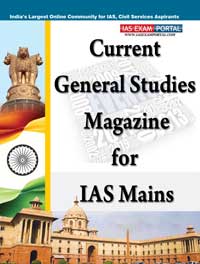
Current General Studies Magazine (March 2016)
General Studies - II "Polity Based Article" (The court’s future is in its own hands)
The Supreme Court’s attempt to orchestrate environmental governance in a case relating to diesel taxis in Delhi hurtles it towards a new frontier, and one for which it is wholly unprepared
Alexander Hamilton, one of the authors of The Federalist Papers , foundational documents for the U.S. Constitution, presciently wrote that the judiciary “has no influence over either the sword or the purse”. Instead it only has its power of judgment, using which it must earn the respect of the people. Few courts have demonstrated the truth of this proposition more amply than the Supreme Court of India. At its inception in 1950, its greatness lay in the erudition of its judges, the majesty of the legal profession and the sheer breadth of power invested in it by the framers of the Constitution. As India evolved, so did the reasons for the Supreme Court’s greatness — it was a court that spoke truth to power, with judges who were both erudite and conscious of their constitutional and social responsibilities. Popular respect for it was always undergirded by an unquestioned faith in judicial competence to do the right thing.
Recent actions of the Supreme Court, however, present a worrying portend of how the court in its current avatar is likely to be perceived. Three factors have precipitated such a worry — first, its expansionist role attempting to orchestrate environmental governance in the case relating to vehicular pollution in Delhi; second, the intuitively incorrect legal bases for several such orders; third, an inadequate appreciation of its own institutional limitations. Taken together, this expansionism means it is hurtling towards a new frontier of accountability, one for which it is wholly unprepared.
The diesel taxi flip-flop
In a surprisingly bold move, the Supreme Court ordered all diesel taxis to cease operations in Delhi because the deadline for their conversion to CNG had expired. However after two days of continued protests and a fresh hearing, the court agreed to modify its order and allowed already registered taxis to ply, while at the same time preventing fresh registrations. Two aspects of the court order are particularly troubling — first, that repeated persuasion could force the court to change its mind. Nothing could be more antithetical to the dignity of a court of law than an insinuation that it is amenable to entreaty. This is especially so since traditionally courts have placed significant emphasis on finality.
Second, the order of the court to ban diesel taxis in Delhi in the first place was contrary to law, common sense and practical reality. In pure legal terms, taxi owners had legitimate expectations that once a commercial licence was issued on particular terms, those terms would be respected. For the court, without finding those terms themselves faulty, to have modified them to the detriment of the taxi owners would upset their legally protected expectations.